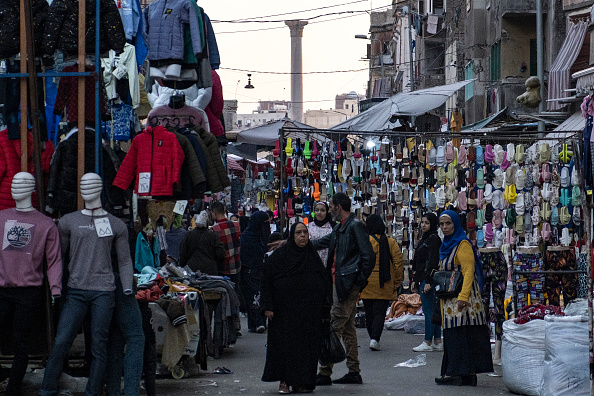Economic Experts Blame Government Mismanagement for Egypt’s Crisis
An array of economic experts are pointing fingers at the Sisi government, claiming that their mishandling of the economy has played a significant role in Egypt’s current massive crisis.
The International Monetary Fund (IMF) recently extended Egypt’s loan programme to a whopping US$8 billion, a move that underscored the severity of the situation. Last month, the World Bank revised Egypt’s economic growth forecast for the current fiscal year down to a mere 2.8 per cent – the lowest in 11 years. The region’s most populous country is grappling with what many are calling the greatest economic crisis in its modern history.
This marks the third time this year that the World Bank has adjusted Egypt’s growth projections downward. In its most recent Middle East and North Africa Economic Update, the World Bank identified the sluggish performance of the industrial sector, soaring inflation rates, and the ripple effects of regional conflicts as key factors contributing to Egypt’s economic woes.
The report also highlighted that Egypt faces substantial fiscal impacts resulting from the combination of the Suez Canal crisis and ongoing conflicts in the Middle East. Revenue from the Suez Canal, a critical source of national income, has plummeted by nearly half this year, a consequence of repeated attacks on international shipping in the Red Sea. These attacks, carried out by the Houthis in Yemen in protest of the conflict in Gaza, have further destabilized Egypt’s already fragile economic landscape.
As Egypt struggles to stabilize its economy, the devaluation of the Egyptian pound against the US dollar has exacerbated the situation. The sharp decline in the value of the currency has led to increased prices for essential goods, hitting the nearly one-third of Egypt’s population living below the poverty line particularly hard.
To address the shortage of foreign currency, Egypt has been aggressively selling off state assets to wealthy Gulf nations like the United Arab Emirates. However, many experts argue that the government’s focus on costly, unsustainable projects such as the New Administrative Capital – which has reportedly cost Egypt around US$60 billion – has only worsened the country’s economic predicament.
In the midst of this economic turmoil, the World Bank warns that Egypt could face even more severe consequences if regional conflicts escalate or persist. The road ahead for Egypt’s economy is fraught with challenges, and experts are calling for a comprehensive reassessment of the country’s economic policies to navigate through this crisis.
